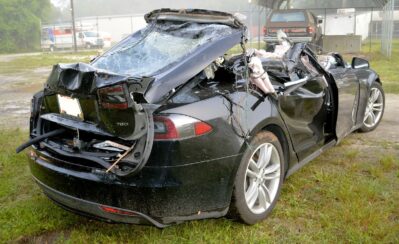Chicago and the Great Lakes Compact
Chicago’s water policy has been a regular subject of conversation at the Law School, whether in the form of public events, faculty scholarship, or blog posts. So, too, has the history and development of the Great Lakes Compact.

Today’s post digs into the unique relationship between the two, given the recent announcement that Chicago has entered into a water supply agreement with the city of Joliet, approximately 35 miles to the southwest. Chicago will supply treated Lake Michigan water to Joliet for a century, beginning in 2030, at a cost estimated to approach $1 billion in today’s dollars. The Cleveland Plain Dealer called the deal a “stark warning” for the Great Lakes Compact. A USA Today column questioned, “How could Chicago [do that]?” The question likely invokes the Compact’s general prohibition on diversions outside the Great Lakes basin, with very limited exceptions. The answer lies in a 1967 amendment to a consent decree involving Illinois and other Great Lakes states, approved by the United States Supreme Court, that largely exempts Chicago from following the Compact’s rules.
The 1967 decree allots to Chicago (and several suburbs, via the Chicago water distribution system) a diversion volume of 3,200 cubic feet per second, or just over two billion gallons per day. The legal disputes that eventually resulted in the decree date back to Chicago’s reversal of the Chicago River, an engineering marvel resulting in no shortage of legal skirmishes. In a case argued before the Supreme Court in 1928 and decided a year later, Wisconsin, Michigan, and New York sued Illinois seeking to enjoin the Chicago diversion—then estimated at 8,500 cubic feet per second—because, they alleged, “the Chicago diversion had lowered the levels of [the Great Lakes and their connecting waterways] not less than six inches, to the serious injury of the complaining states.” The Court ultimately allowed the diversion to continue but capped its size to an amount that varied over decades of subsequent litigation until finally settling on 3,200 cfs in the 1967 decree.
Notably, the Court retains jurisdiction over the decree. From time to time a state has sought to reopen it. In 2010, for example, the Court denied Michigan’s motion to reopen the decree on the grounds that the diversion constituted a public nuisance by allowing the introduction of harmful aquatic invasive species into the Great Lakes.
The Compact’s default approach, a ban on diversions of Great Lakes water outside the Great Lakes basin, would prohibit the Chicago diversion. So there is no doubt that Illinois would not have agreed to the Compact without special carveout provisions protecting its rights to the Chicago diversion under the consent decree. The Compact does just that, in a lengthy section confirming that Great Lakes water use in Illinois is to be governed by the consent decree, not the Compact. In fact, to remove all doubt, the Compact actually prohibits Illinois from applying for diversions under its terms.
The precise terms of the Chicago-Joliet agreement are difficult to find, with the media reporting only the broad outlines of the deal. The Water Supply Agreement attached to the Chicago City Council’s approval provides that “Chicago shall deliver Water to Joliet on any day in an amount as requested by Joliet,” up to a “guaranteed maximum capacity” of 105 million gallons per day. That sounds like a lot of water—and it is—yet even at maximum capacity only accounts for about 0.05% of Chicago’s allocation under the consent decree.
Thus, there is little question that Chicago has the legal authority to sell water to Joliet. And even the maximum delivered volume is a drop in the bucket of Chicago’s allocation under the 1967 consent decree.
Yet the question remains whether it is good policy to sell water for economic development purposes. Some have suggested that as other parts of the country implement water use restrictions, the Great Lakes states should use water as a tool to attract new businesses and residents. Others argue that our abundant water supplies must be carefully stewarded. Finding the right middle ground will be challenging.
As for the Compact, the Joliet sale is perhaps foreboding, as the media coverage has suggested. But its immediate impact is limited to the amount of Chicago’s diversion. Greater difficulties await. At another recent Law School conference, this one commemorating the Compact’s tenth anniversary, former Wisconsin governor Jim Doyle suggested that the Compact’s greatest test would come when a signatory state faced a water crisis in a region outside the Great Lakes basin. Would the governor stick to the Compact and deny water to its own citizens, Doyle wondered? That is exactly the situation unfolding in Illinois, a Great Lakes state that is not governed by the Compact with respect to the Joliet crisis. But the implications for the other Great Lakes states – and the resulting concerns for the future – are unmistakable.

